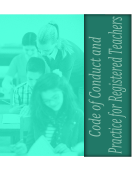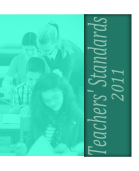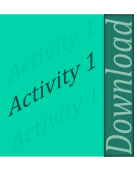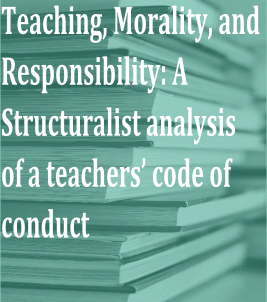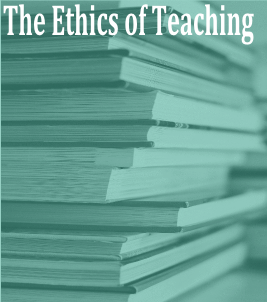
Most publicly significant professions, vocations and other human occupations in civil and civilized societies, have more or less formal codes of conduct, or ‘professional ethics’, designed to ensure good or just practice, and to protect clients. However, such codes seem insufficient to guarantee the conformity of individual practitioners.

From this viewpoint, many latter day professional failures or ‘scandals’ in contexts of public concern (such as in politics, law, medicine, social work, education and commerce) would appear to have been attributable more to failures of personal moral character in individual practitioners.
While institutions and agencies of professional education and training have recently and rightly sought to promote deeper appreciation of the principles of just professional engagement on the part of professional practitioners, it would seem that the no less urgent matter of helping them to acquire the moral qualities of integrity, courage, self-control, service, selflessness, and so on, has received less attention.
Principles of teaching ethics may need to concentrate on virtue-based accounts which turn away from the action being performed, and towards the character of the practitioner making the decisions. The reality of learning: to practice ethical teaching is not a matter of being taught a code, but of a hidden curriculum that exists largely in practice and example.

Review the Code of Conduct and Practice for Registered Teachers document (General Teaching Council for England) and the Teachers’ Standards 2011 available from gov.uk.

Download the template and answer the following questions:
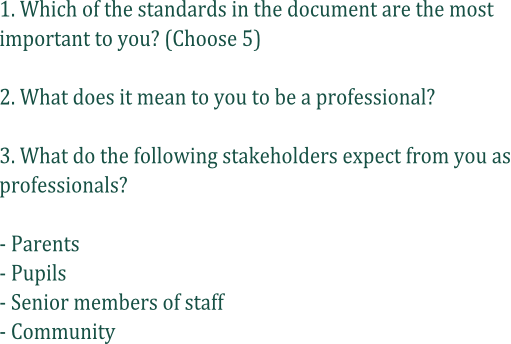

Write a short 500 word essay reflecting on the following (you may find this would make a good entry for your training portfolio):
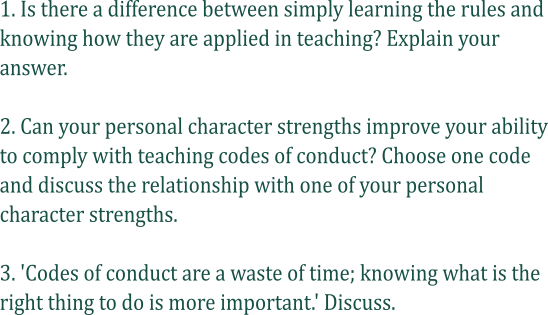

Consider the ‘you must’ and ‘you should’ terms used in Teachers’ Standards 2011 document.
Design your own ethical dilemma scenario which challenges the compliance with the ‘you must’ or ‘you should’ terms. Create a list of actions available for teachers and ask a fellow student to read your dilemma  and choose
and choose
a course of action.
Discuss the course of action with fellow learners.

D. Shortt, F. Hallett, D. Spendlove et al – The researchers conduct a Structuralist analysis of the General Teaching Council for England’s Code of Conduct and Practice for Registered Teachers in order to reveal how teachers are required to fulfill an apparently impossible social role. | B. Avalos – A review of publications in Teaching and Teacher Education over ten years (2000–2010) on teacher professional development is the subject of the paper; explores the complex process of teacher professional learning through thematic areas of interest. | K. A. Strike- Miss Andrews has had several thefts of lunch money in her class. She has been unable to catch the thief, although she is certain that some students in the class know who the culprit is. She decides to keep the entire class inside for recess, until someone tells her who stole the money. Is it unethical to punish the entire class for the acts of a few? |




